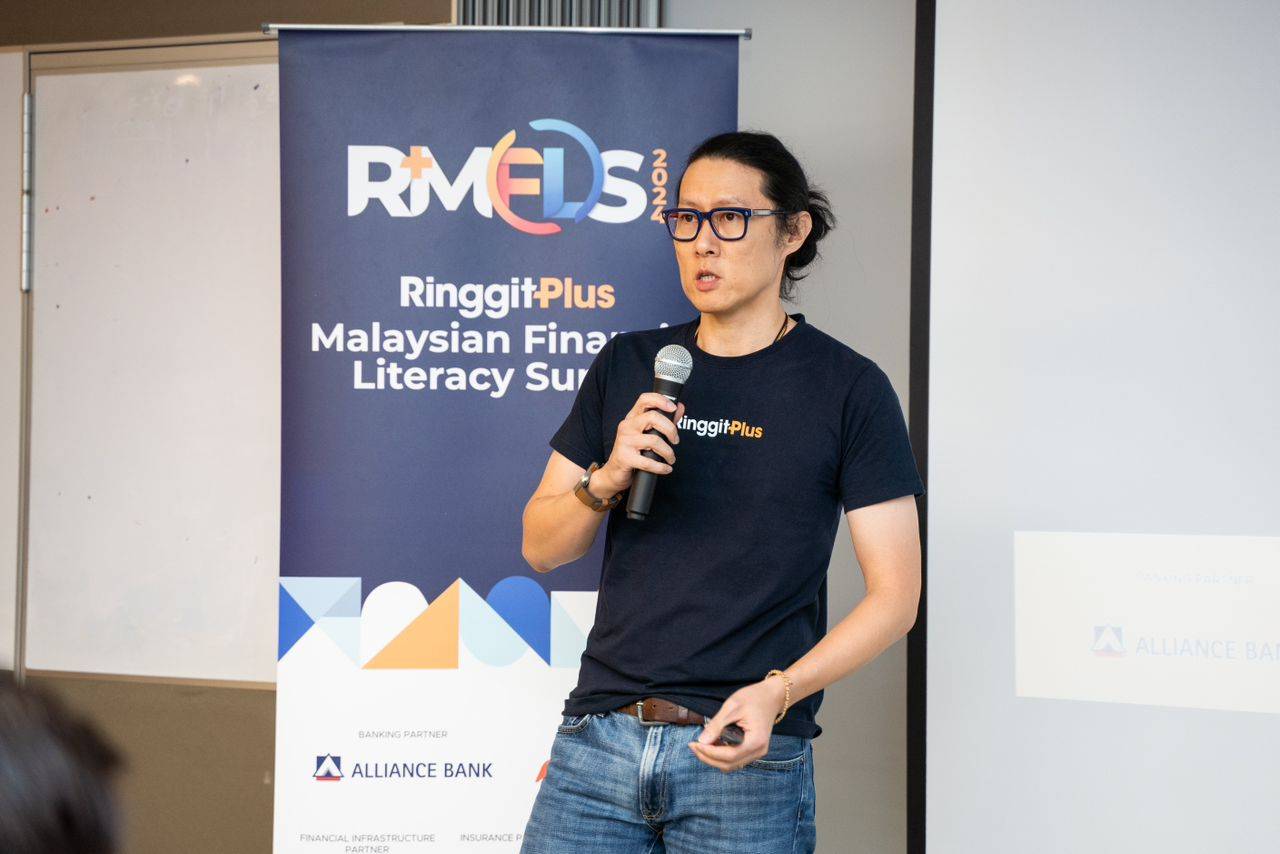More Malaysians feel anxious about their finances despite increased digital financial literacy
While many Malaysians were still struggling with financial insecurities, the rise of digital platforms and financial education offered hope for a more financially stable future.

SHAH ALAM - Amid encouraging improvements in financial literacy and planning, a recent survey highlights an ongoing trend of financial anxiety among Malaysians.
While more individuals were taking steps towards better financial management, 55 per cent of Malaysians still admitted to feeling anxious, frustrated, or embarrassed about their financial status.
The same percentage was reported in 2023.
This revealed a persistent concern about financial well-being despite progress in key areas.
According to RinggitPlus chief executive officer Yuen Tuck Siew, although many Malaysians were becoming better at managing their finances, these concerns remained.
"There are still some pockets of uncertainty when it comes to financial well-being.
"Despite the fact that many of the key metrics around financial well-being have improved, 55 per cent of Malaysians still feel anxious or embarrassed about their financial standing, unchanged from last year," Yuen said during the unveiling of the 2024 Malaysian Financial Literacy Survey (RMFLS) results at Menara Etiqa, here, today.

This annual study provided insights into the financial habits, challenges and outlook of Malaysians.
The 2024 survey gathered responses from those aged 18 and above, ensuring a balanced representation across gender, race, age and location for reliable data.
The results highlighted improvements in key areas such as financial security, while also highlighting the need for enhanced digital financial literacy across the nation.
Also present at the event were PayNet Malaysia chief marketing officer Gary Yeoh, FWD chief marketing officer Susan Ong, CTOS Community Outreach and Events manager Noor Hazwani Mohamad Noor and Alliance Bank’s Consumer Banking head Gan Pai Li.
Yuen also said an interesting aspect of the survey was that those earning over RM10,000 per month appeared to be worse off in 2024 than they were in 2023.
Only 48 per cent of high earners were living paycheck to paycheck, up from 40 per cent last year.
The percentage of high earners who could survive without income for four months or more has significantly decreased to 58 per cent, compared to previous years.
Growth in digital financial tools
On a more positive note, digital financial services were on the rise, with more Malaysians embracing e-wallets and digital banking services.
The survey revealed that 95 per cent of Malaysians were now using at least one e-wallet, a jump from 91 per cent in 2023.
Additionally, 45 per cent have opened a digital bank account, while 26 per cent were considering doing so soon.
Furthermore, Yuen said the use of online platforms for purchasing insurance has gained traction, with nearly 29 per cent of Malaysians opting to buy their insurance online.
These figures pointed to a growing reliance on digital tools as a means of managing personal finances and financial security.
"Malaysians are increasingly turning towards digital financial services and this shift is helping them to better manage their financial well-being," Yuen added.
He pointed out that the trust in digital platforms continued to grow, with social media now the most trusted source of financial information, surpassing even friends and family.

CTOS empowers Malaysians to take charge of their financial health
CTOS, a leading credit reporting agency in Malaysia, has been playing a critical role in promoting financial education and credit monitoring.
Hazwani stressed the importance of improving financial literacy among Malaysians, especially when it came to managing credit scores and financial health.
"At CTOS, we encourage Malaysians to educate themselves about financial planning. A strong financial foundation not only boosts confidence but also allows individuals to better navigate their financial journey," Hazwani said.
She added that CTOS has been actively involved in community outreach efforts, helping Malaysians understand the importance of financial health, which she said was interconnected with mental, physical and spiritual health.
CTOS also offered tools such as the CTOS Score, which allowed users to monitor their credit health.
Consumers can access their MyCITOS basic report every six months, providing them with a detailed overview of their financial status.
This regular monitoring helped them stay informed and in control of their financial standing.
Financial education from an early age
Financial education was not just for adults; it should begin at a young age. Hazwani also emphasised the importance of teaching children about financial responsibility early on.
"When children learn how to manage money at a young age, they grow up to be financially savvy adults who can navigate challenges with confidence," she said.
As Malaysians increasingly turn to digital financial tools and platforms, education around financial management remained a priority.
Both RinggitPlus and CTOS continued to advocate for better financial literacy, aiming to empower Malaysians to overcome anxiety and take charge of their financial futures.
While many Malaysians were still struggling with financial insecurities, the rise of digital platforms and financial education offered hope for a more financially stable future.










